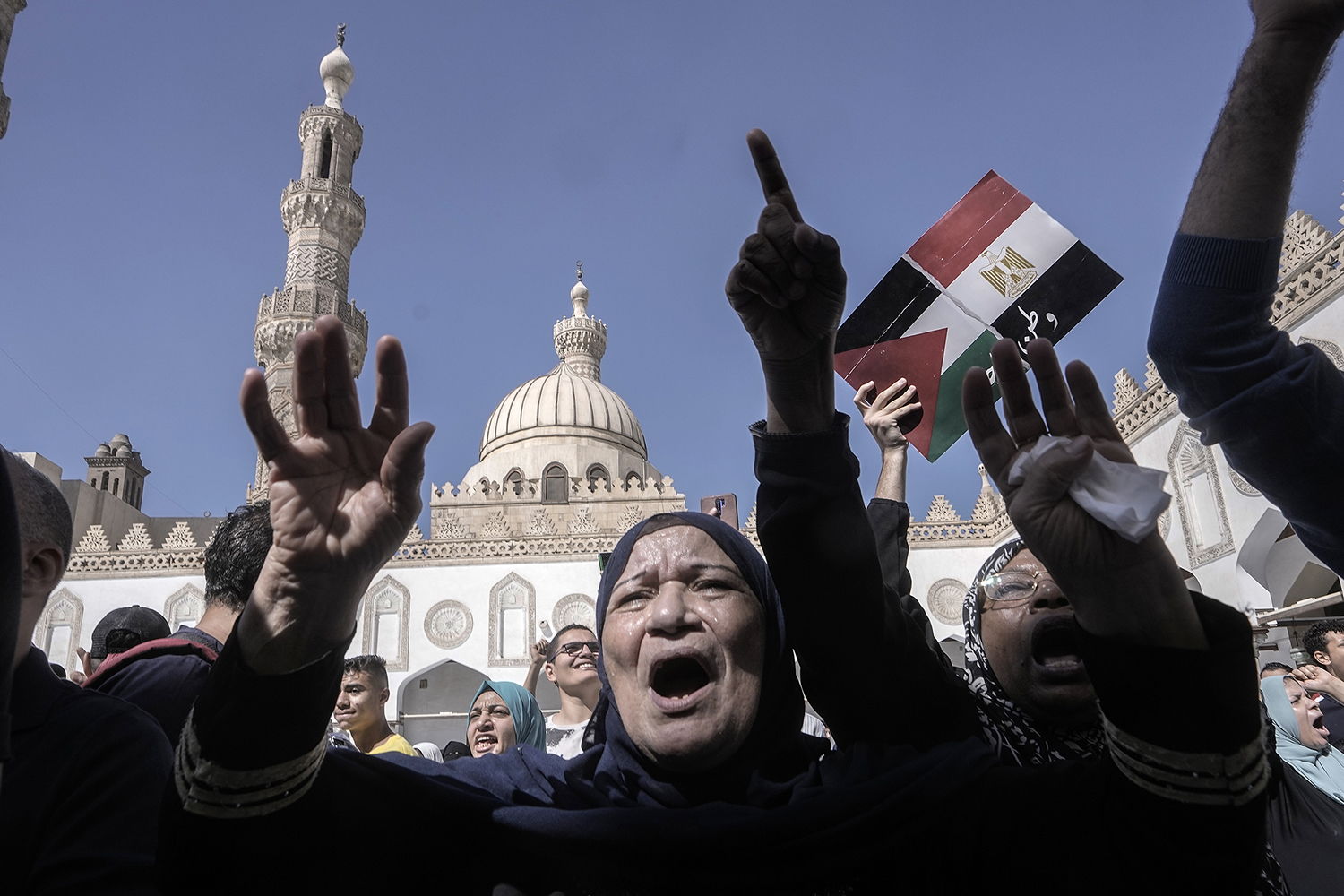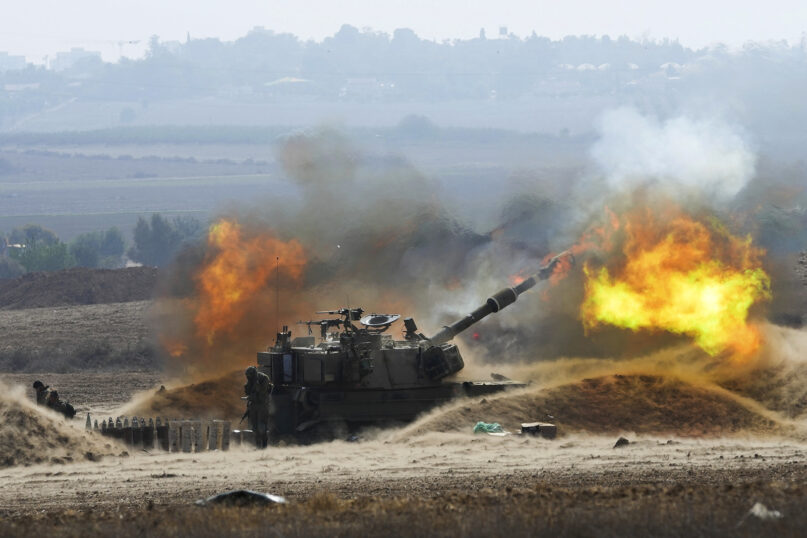(RNS) — Thirty-nine years ago in India, I escaped death at the hands of a mob that had come to drag me and my family out on the streets of New Delhi because we were Sikhs. Since then every November is a somber reminder to me of the brutality we humans are capable of inflicting on each other. The ongoing Israeli-Hamas conflict makes this memory a bit more raw and tender.
Amid the tragic loss of innocent lives in Israel and now in Gaza, and all the ensuing grief, protests and intense conversations, one thing ripples inside me with a deep sense of unease: Humans’ ability to justify, at times even to cheer, the deaths of those we perceive as the “other.”
I say this not as a judgment of Israelis or Palestinians, but as someone who has justified the deaths of my so-called “other.” If there is to be peace at the end of this horrible conflict, those involved must first free themselves from seeing each other only as enemies.
On Oct. 31, 1984, Indian Prime Minister Indira Gandhi was assassinated by two of her Sikh bodyguards.
The next morning, despite my family’s self-imposed curfew at home, my father made the fateful decision to head out onto the second-floor balcony of our apartment, not realizing the brutality already unfolding on the streets of India’s capital. From a distance, a man yelled a slur in Hindi. Within minutes a mob was calling for us to be dragged out.
Luckily for me and my family, some street-smart kids, including my friends who were playing cricket in a field nearby, were able to talk the mob out of dragging us out because it would require destroying government property: My father worked for federal agencies, and we lived in government housing.
Thousands of Sikhs across India were not as lucky. Mobs, protected at times by police and with the aid of voter rolls provided by local politicians that showed our religious affiliation, had free rein for days to pillage Sikh bodies, homes, businesses and places of worship. Sikhs were hunted down, identified by their turbans and long hair. Many were burnt alive, “necklaced” with car tires that were then doused with kerosene and set alight. This happened in cities across India.
On Nov. 19, the new prime minister, Rajiv Gandhi, son of the slain leader, said in an address to the nation, “When a big tree falls, the earth obviously shakes.”
As months turned into years, most of the men who orchestrated and committed the killings were never brought to justice. On the contrary, some were re-elected, promoted and elevated to positions of power.
Against this backdrop, the conflict between Sikhs and Indian soldiers in the northwestern state of Punjab, which had led Gandhi’s assassination, raged on. Thousands of innocent Sikhs and Hindus lost their lives to Sikh militancy and state-sponsored terrorism.
But after the genocidal massacre in New Delhi and other places, and the brazen impunity enjoyed by those responsible, I quietly cheered the deaths of innocent Hindus at the hands of Sikh militants. I knew it was wrong. I felt shame. I did not tell anyone about these emotions. My moral compass was giving me the right signals, but still I silently cheered the deaths of innocents.

Protesters shout anti-Israel slogans during a rally to show solidarity with the people of Gaza after Friday prayers at Azhar Mosque, the Sunni Muslim world’s premier Islamic institution, in Cairo, Egypt, Friday, Oct. 20, 2023. (AP Photo/Amr Nabil)
I hear echoes of this dark instinct now raging through voices in the Middle East, and here at home in the United States. There are significant issues at stake in this conflict, which have difficult but practical solutions. Unfortunately, a narrative of the “other” has become an integral part of these conflicts, the need to frame the other side as the violent aggressor, the intransigent foe, a villain.
A week after the current violence began, the president of Israel, Isaac Hertzog, implied at a press conference that all Palestinians were culpable in the Hamas attack. “It is an entire nation out there that is responsible,” he said. A few days earlier, Israel’s defense minister said, “We are fighting human animals, and we are acting accordingly.”
After Hamas’ slaughter of 1,200 Israelis, most of them civilians, 98% of Palestinians in the West Bank and Gaza surveyed in the first week of November reported “feeling prouder of their identity as Palestinians.”
There is an Israeli narrative that sees Palestinians homeless forever or annihilated for good. There is a Palestinian narrative that sees Jews driven out of the Middle East or annihilated for good.
These narratives only beget more violence. Our past is littered with countless examples of carnage powered by this vicious storytelling.
Residing with these dark instincts, however, is a light that shines toward courage, founded not on hate for our enemies but on our vulnerabilities. This is a path where we can find compassion and compromise to resist forces of division and destruction in our own physical bodies and homes. It is a journey — one much more likely than the war’s narratives — for Israelis and Palestinians to find common ground in the desire for peace despite vulnerability for hate.
(Vishavjit Singh is a senior director in the Office of Diversity and Inclusion at the Fire Department of New York and is the creator of Sikhtoons.com. The views expressed in this commentary do not necessarily reflect those of Religion News Service.)





